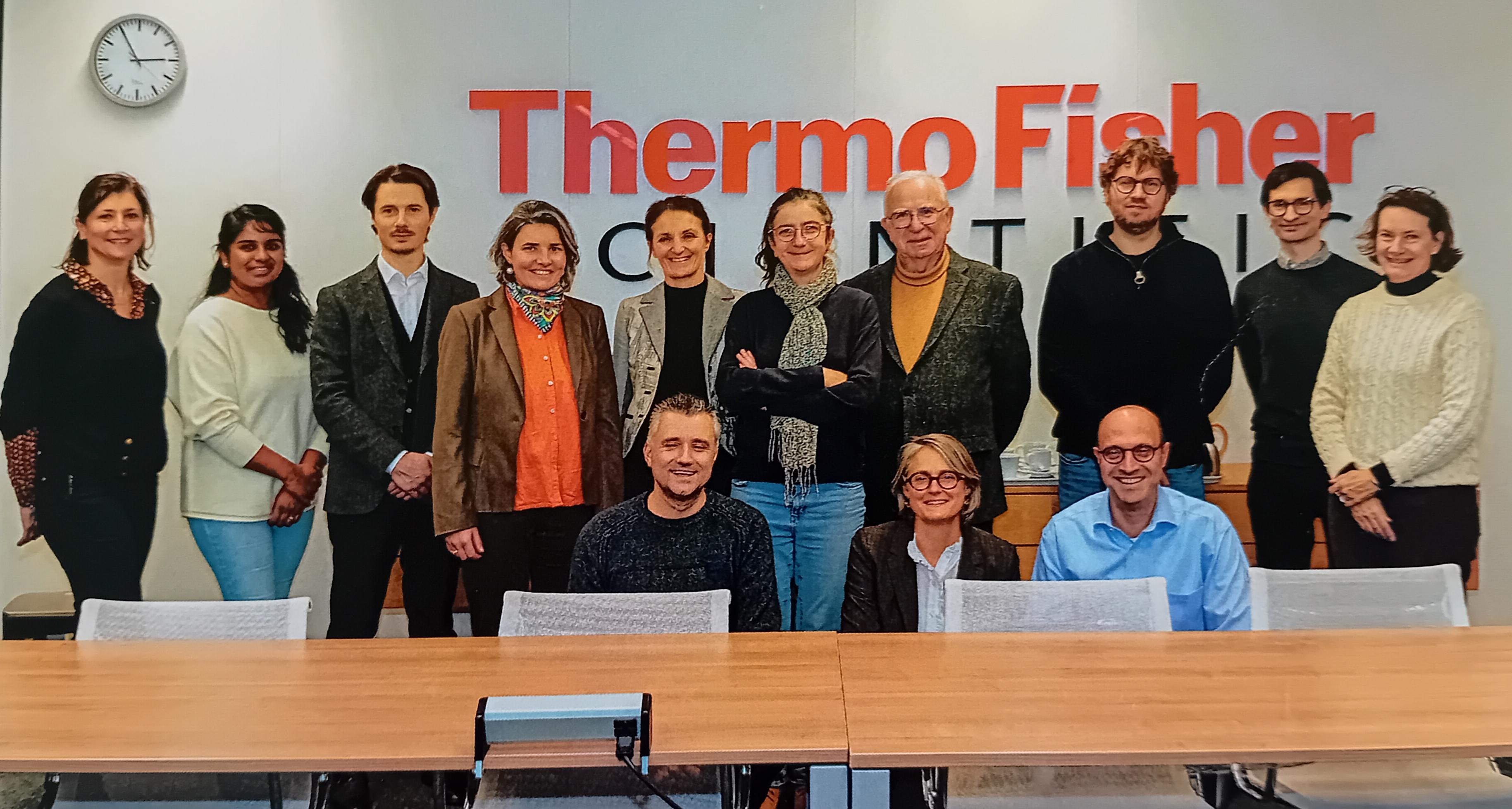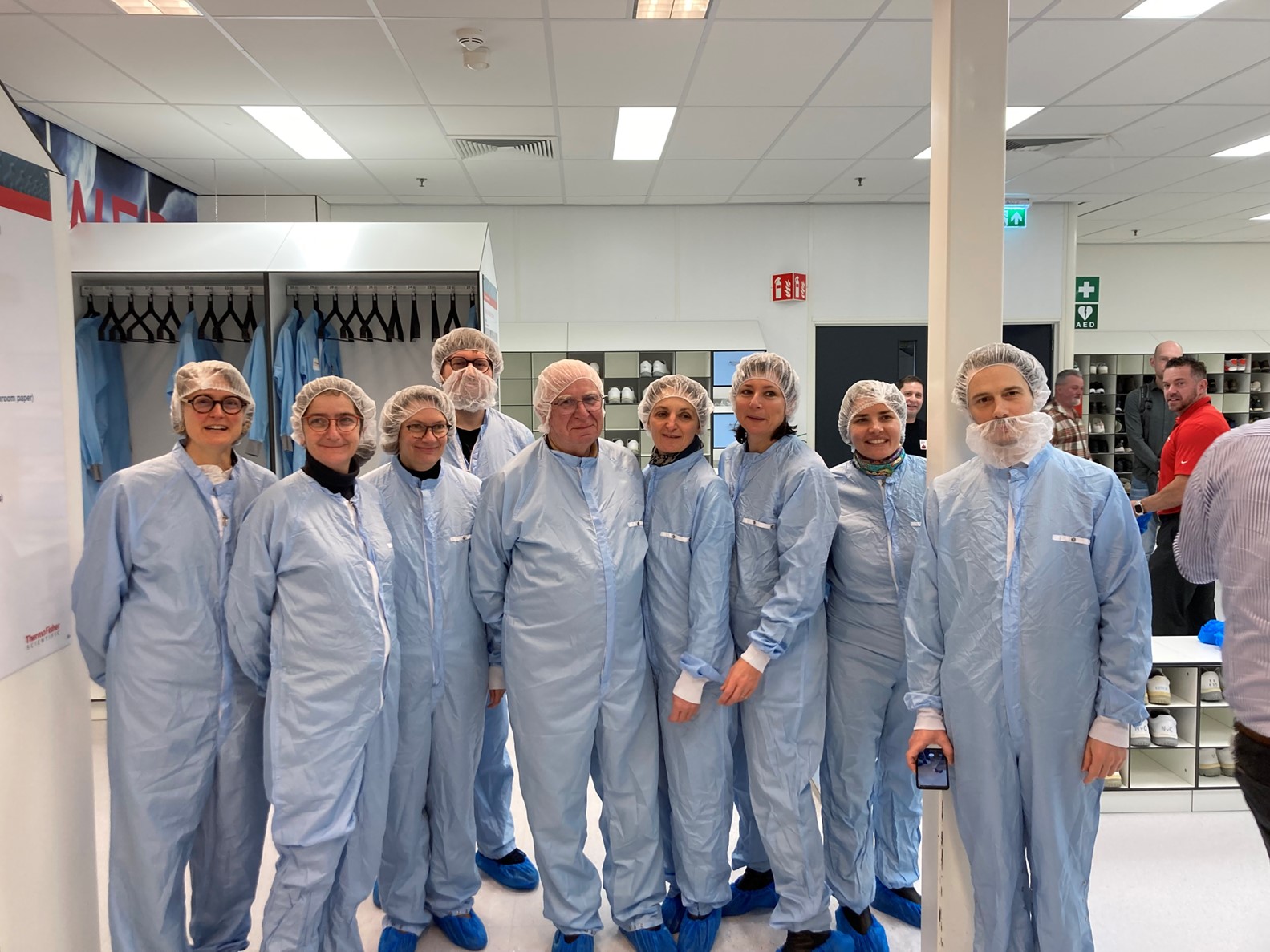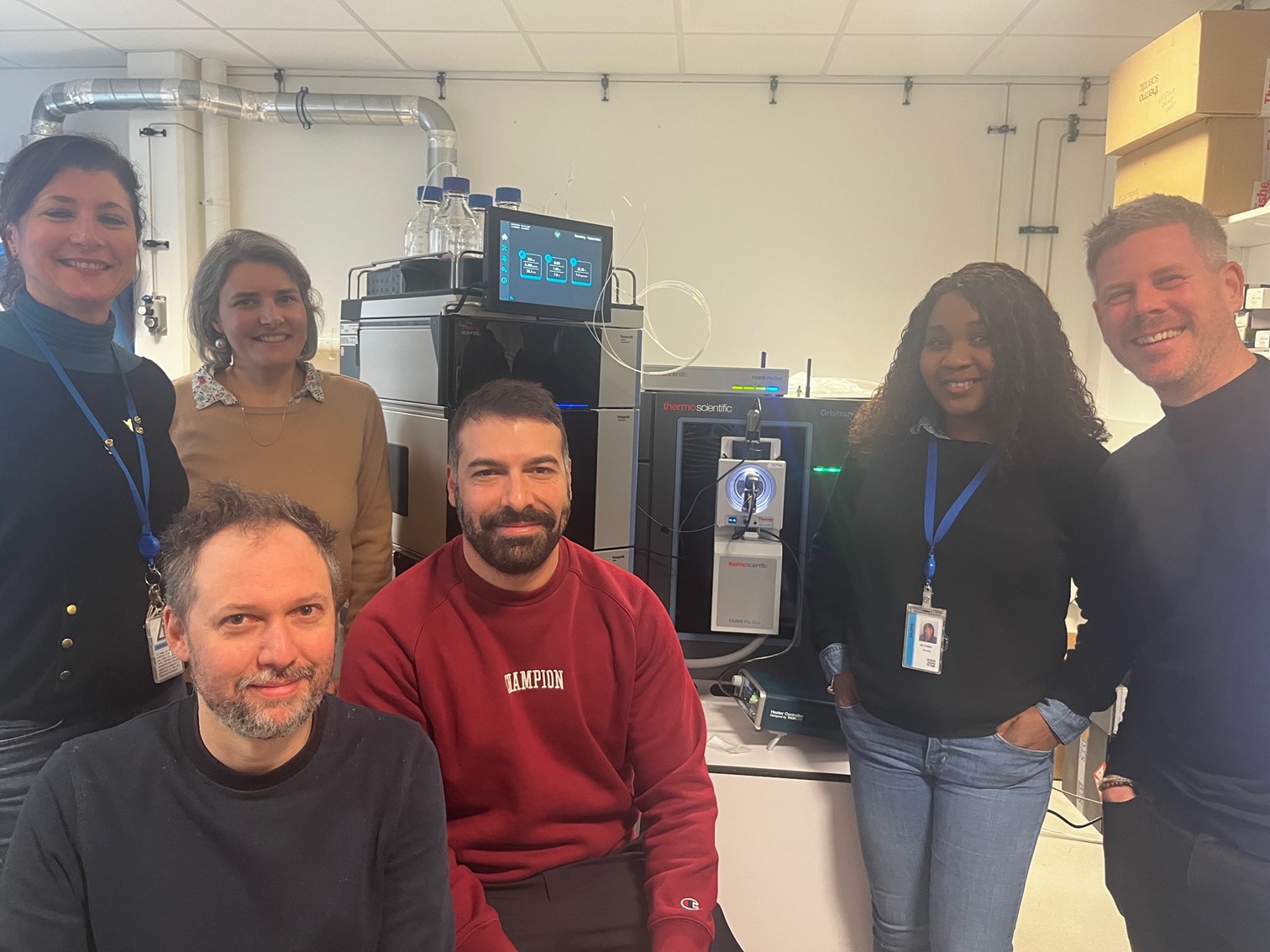
 innovation
innovation
R&D framework agreement with Thermo Fisher Scientific: two collaborations launched in 2024
Thermo Fisher is a supplier of equipment, analytical instruments, reagents and consumables, software and services for diagnostic and clinical laboratories.
A framework collaboration agreement between the Institut Pasteur and Thermo Fisher Scientific Inc (Thermo Fisher) was signed in February 2020 to develop projects (not related to purchases) between the two parties. A team from the Technology Transfer and Industrial Partnership Department (DARRI) has been specifically assigned to this partnership.
In recent months, following fruitful and regular exchanges and a strong commitment from both parties, two collaborations have been developed: the loan of new equipment for the Proteomics Platform and a project to develop novel decontamination methods for Cryo-EM equipment in BSL3 laboratories.
Decontamination of Cryo-EM equipment in biosafety level 3 laboratories
One of the ambitions of the CMTV infrastructure is to provide scientists on campus with a state-of-the-art technological environment, with biosafety level 3 (BSL3) laboratories to study the most critical pathogens. The infrastructure will enable scientists to conduct innovative experimental research on pathogen-vector-host and pathogen-host interactions, drawing on state-of-the-art imaging techniques. To incorporate Cryo-EM equipment (including the Titan Krios) in the BSL3 in the future building, major work is under way to overcome the difficulties associated with decontaminating these high-resolution electron microscopes.
The "Cryo-EM in BSL3 in the CMTV" project is a cross-cutting project involving several departments, including the Technology Department with the NanoImaging Core Facility (led by Matthijn Vos) and the C2RT (Nathalie Aulner), the Department of Corporate Social Responsibility and Technical Resources (DRSE-RT) and its biosafety team (SPR), the team coordinating the CMTV project, and the Technology Transfer and Industrial Partnership Department (DARRI).
Collaboration with Thermo Fisher on this project will enable the identification of appropriate decontamination methods and the development of new methods to widen the range of pathogens that can be studied in BSL3 laboratories.
As part of this process, a group of Institut Pasteur scientists visited the Thermo Fisher plant and R&D teams in Eindhoven on December 5.


Visit to the Thermo Fisher Center for Electron Microscopy – Eindhoven NanoPort by Institut Pasteur scientists Anna Kehres, Nathalie Aulner, Sylvie Chauvaux, Matthijn Vos, Patrice Binder, Nathalie Denoyés, Valérie Hélin, Anne Nham and Jean-Charles Moczarski.
Orbitrap Astral installed in the Proteomics Platform
The framework agreement with Thermo Fisher has also facilitated the loan of new equipment, the Orbitrap Astral, to the Proteomics Platform led by Mariette Matondo. The Institut Pasteur is one of the first academic institutions to use this costly state-of-the-art equipment, which should enable the scientific community to develop applications and new workflows in the following fields:
- Single cell and immunopeptidomic research
- Cross-linking mass spectrometry research

Installation of the Orbitrap Astral in the Proteomics Platform with the Thermo Fisher team
For the Institut Pasteur: Anne Nham, Valérie Hélin, Mariette Matondo and Martial Rey.
The next Institut Pasteur/Thermo Fisher steering committee meeting will be held in January 2025 and will be an opportunity for the Institut Pasteur's teams to present the new Institut Pasteur Strategic Plan, discuss potential new projects and develop a joint action plan for the coming year.
As you may already be aware, the Institut Pasteur has established framework agreements with several strategic industry partners, including Thermo Fisher Scientific but also bioMérieux, Sanofi, Roche, Sensorion and Moderna (via a Material Transfer Agreement).
Framework collaboration agreements: a tool to speed up co-development and reduce administrative burden
Framework agreements offer several advantages:
• They facilitate access to experts in R&D teams,
• They make it easier for scientists to visit laboratories and facilitate student exchange programs. They improve administrative efficiency:
- for example, as confidentiality issues are already covered, there is no need to draw up a confidential disclosure agreement (CDA) for each new discussion,
- as the legal terms of potential applications have been discussed in advance, a template is already available, making it quicker to draw up a collaboration agreement.
Please feel free to contact the Technology Transfer and Industrial Partnership Department (DARRI) if you would like to collaborate with one of our industry partners.
 Contact : darri@pasteur.fr
Contact : darri@pasteur.fr